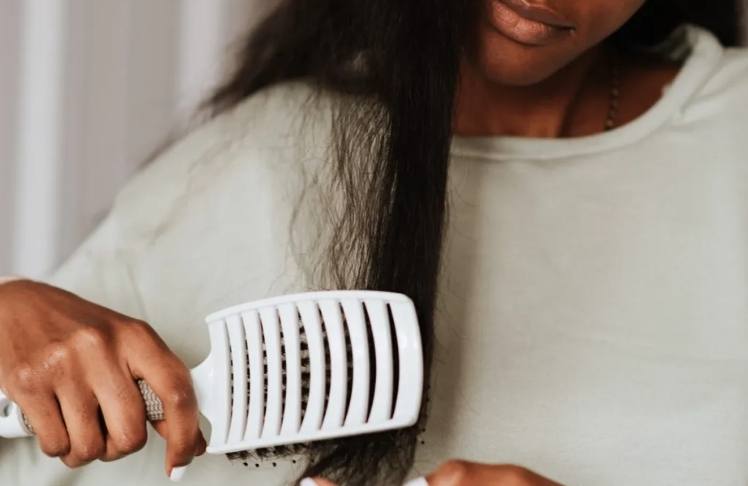
by Alexa Spencer
Black women have been abandoning chemical hair straighteners, also known as “relaxers,” for many reasons. Some do it to give their natural hair a chance, and others do it because the possible side effects of relaxers — burned scalps and hair loss — are too painful.
Now, with recently emerged research suggesting an association between relaxers and uterine cancer, Black women are debating on throwing the products out all together and exploring other methods of hair care.
Kimberly Foster, the founder of For Harriet — an online community for Black women — says now is not the time for neutrality when it comes to relaxers.
“I don’t care if Black women wear straight hair, but we should be actively discouraging Black women from getting relaxers. Not neutral,” she tweeted. “The messaging should be as overtly negative for relaxers as it is for cigarettes.”
Smoking cigarettes and using chemical hair straighteners are vastly different activities, but research shows both could raise a person’s risk for cancer.
A study by the National Institutes of Health published in the Journal of the National Cancer Institute on Oct. 17 found that women who used straightening products were more likely to have uterine cancer than women who didn’t. There was an even greater association for women who used the products more than four times in a year.
About 60% of the participants who reported using chemical hair straighteners in the past year were Black women. According to the National Institutes of Health, studies are also showing a rise of uterine cancer among this group.
The study found no association between uterine cancer and other hair products, such as dyes and permanents or body waves.
“As usual, 40 years later and we are told something is unhealthy and cancerous,” a user named NikkiB wrote on Twitter.
While women of various races and ethnicities were included in the research, Black women are a particularity high risk for the potential health side effects.
“Because Black women use hair straightening or relaxer products more frequently and tend to initiate use at earlier ages than other races and ethnicities, these findings may be even more relevant for them,” Dr. Che-Jung Chang, an author on the study and a research fellow in the NIEHS Epidemiology Branch, said in a statement.
Dr. Uché Blackstock, a physician who advocates against racism in health care, also took to Twitter to share her concerns about the study’s results.
“Although I’ve worn my hair natural for most of my life, many Black women know very well the societal pressure to straighten and chemically alter our hair,” she tweeted. “We are bombarded with Eurocentric standards of beauty. We are told our own Afro-textured hair is unprofessional and unkempt.”
Further, Blackstock wrote that the study is upsetting because “we might be actually risking our lives to look socially acceptable and to keep our jobs.”
The side effects of hair relaxers can be serious. A Twitter user named Blani wrote that with this in mind, she’s staying away from the products.
“I feel like you’re looked at like a natural hair snob if you say anything against getting relaxers,” she tweeted. “You know something has to be toxic in it for it to burn your scalp to the point that it starts oozing and crust over! I will never go back.”
Some women suggest getting silk presses instead of chemical relaxers for a straight look, but without the health issues.
“My whole family (except me unfortunately) have gotten silkpresses their whole life and their hair is strong and gorgeous and straight all without relaxers,” Cait tweeted.
While the findings in this study are consistent with past research that identifies increased risk in breast and ovarian cancers, researchers say more work has to be done to verify the association with uterine cancer.
“To our knowledge, this is the first epidemiologic study that examined the relationship between straightener use and uterine cancer,” Dr. Alexandra White, the study’s lead author and head of the NIEHS Environment and Cancer Epidemiology group, said in a statement.
“More research is needed to confirm these findings in different populations, to determine if hair products contribute to health disparities in uterine cancer, and to identify the specific chemicals that may be increasing the risk of cancers in women.















